
Lokpaavan Sri Lakshmi Narasimha Swamy: A Divine Sanctuary in Hampi
Explore the Lokpaavan Sri Lakshmi Narasimha Swamy temple in Hampi, where spirituality meets breathtaking ancient architecture.
Lokpaavan Sri Lakshmi Narasimha Swamy is a serene Hindu temple in Hampi, Karnataka, known for its towering statue of Lord Narasimha. This sacred site attracts pilgrims and tourists alike, offering a peaceful retreat into spirituality and history amidst the stunning backdrop of ancient ruins.
A brief summary to Lokpaavan Sri Lakshmi Narasimha Swamy
- 8FP5+24X, Hampi, Karnataka, 583239, IN
Local tips
- Visit early in the morning to enjoy a quieter experience and witness the morning rituals.
- Dress modestly as a sign of respect when entering the temple.
- Take time to explore the surrounding area, as there are many other historical sites nearby.
- Carry water and snacks, as facilities may be limited near the temple.
- Engage with local guides who can share fascinating stories about the temple and its history.
Getting There
-
Car
From the center of Hampi, head south on the main road towards Hospet. Continue straight for about 2 kilometers until you reach a fork in the road. Take the left fork towards the village of Kamalapura. Drive for another 3 kilometers until you see signs for Lokpaavan Sri Lakshmi Narasimha Swamy. Turn left onto the access road and follow it for about 1 kilometer. The temple will be on your right. Parking is available nearby, but be prepared for a small fee of around ₹20.
-
Public Transportation
From the Hampi Bus Station, take a local bus or a shared auto-rickshaw heading towards Hospet. Inform the driver that you need to go to Lokpaavan Sri Lakshmi Narasimha Swamy. The fare for the bus is approximately ₹30, and for the auto-rickshaw, it may cost around ₹100-₹150. The travel time is roughly 30 minutes. Once you reach the nearest stop, walk about 1 kilometer to the temple, following the signs.
-
Walking
If you are already in the vicinity of the Hampi Bazaar area, you can walk to Lokpaavan Sri Lakshmi Narasimha Swamy. Head south towards the riverbank, and then follow the path along the river for about 2 kilometers. You will soon see the temple's towering structure in the distance. This walk will take approximately 30-40 minutes, and you can enjoy the scenic views of the surrounding landscape.
Discover more about Lokpaavan Sri Lakshmi Narasimha Swamy
Iconic landmarks you can’t miss
Manmatha Tank
0.1 km
Explore the tranquil beauty and rich history of Manmatha Tank, a sacred oasis beside the Virupaksha Temple in Hampi, Karnataka.
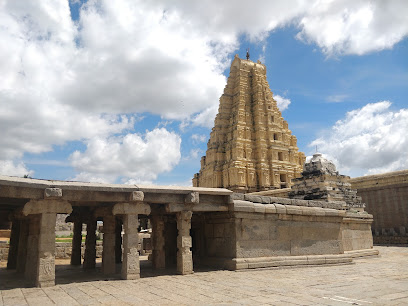
Ferry Point Hampi
0.2 km
Discover Hampi's rich heritage and stunning landscapes at Ferry Point, where scenic boat rides await amidst ancient ruins and vibrant local life.
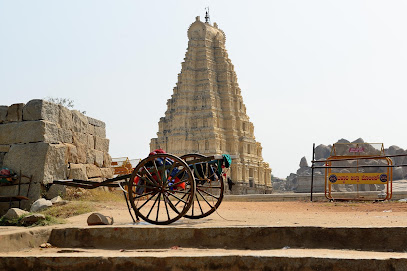
Ancient Mantapa
0.2 km
Discover Ancient Mantapa in Hampi, a stunning historical landmark showcasing exquisite architecture and rich cultural heritage amidst breathtaking landscapes.
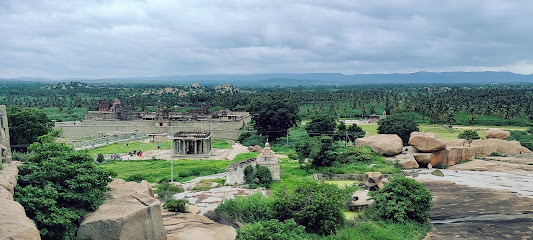
Tungabhadraa Ghats
0.2 km
Discover the historical charm and natural beauty of the Tungabhadraa Ghats in Hampi, a must-visit destination for every traveler.
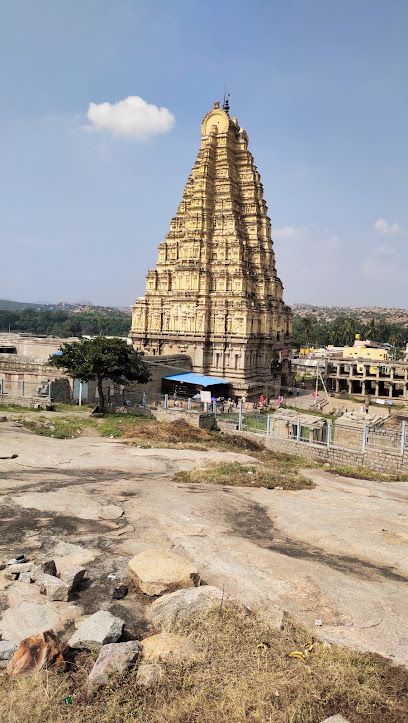
Historical place fort
49.2 km
Explore the Historical Place Fort in Mukkunda, Karnataka – a captivating journey through time with rich heritage and stunning architecture.
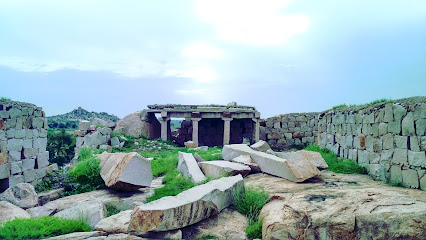
Western most point of AP
50.4 km
Explore the Western Most Point of Andhra Pradesh, a serene historical landmark with breathtaking views and rich cultural significance.

Ancient Chalukya Shri Dambala Dodda Basappa Temple
73.7 km
Explore the unique architectural beauty of the Ancient Chalukya Shri Dambala Dodda Basappa Temple, a remarkable landmark in Karnataka's historical tapestry.
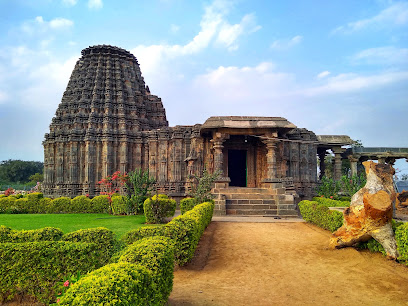
Rayadurgam Fort
81.9 km
Explore the majestic Rayadurgam Fort in Andhra Pradesh, a historical treasure offering stunning views and rich cultural heritage.
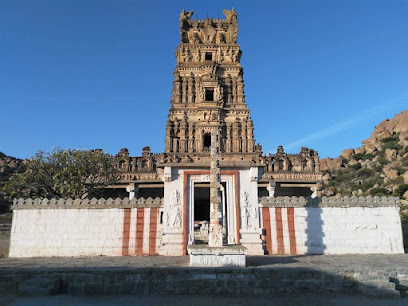
Adoni Fort
94.4 km
Discover Adoni Fort, a historical landmark in Andhra Pradesh, where rich heritage meets breathtaking views in a captivating blend of history and nature.
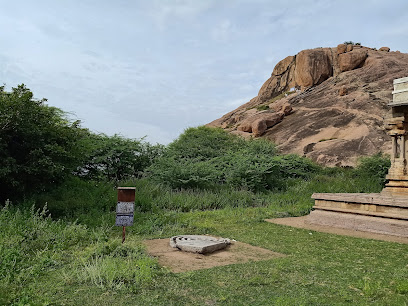
Unknown historical Chalukyan Temple near Aihole
97.5 km
Explore the Unknown historical Chalukyan Temple near Aihole, a hidden gem showcasing breathtaking architecture and rich cultural heritage.
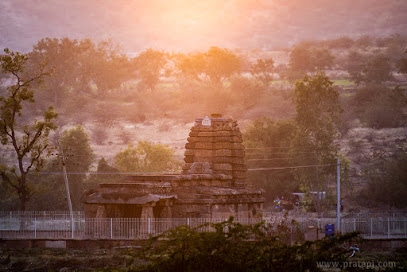
Unmissable attractions to see
Shiva Temple
0.0 km
Explore the grandeur of the Shiva Temple in Hampi, a sacred site of spiritual significance and architectural brilliance.
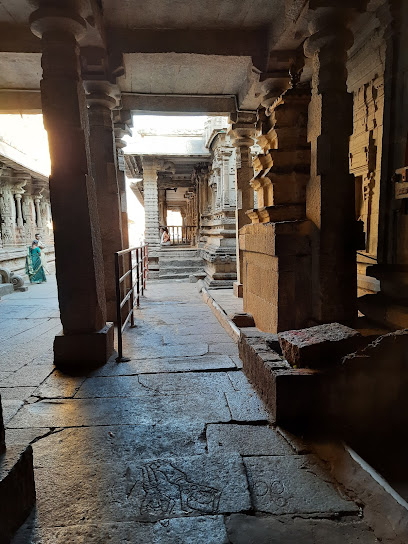
Virupaksha Temple, Hampi
0.1 km
Discover the architectural marvel of Virupaksha Temple in Hampi, a UNESCO World Heritage Site, steeped in spirituality and ancient artistry.
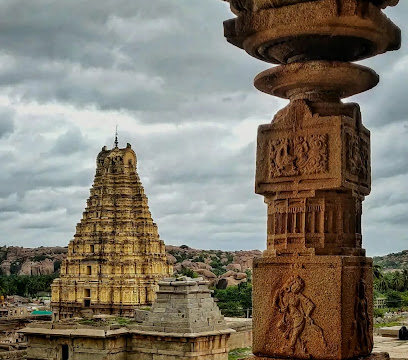
Hampi Hidden River Crossing
0.1 km
Experience the tranquil beauty of Hampi Hidden River Crossing, where nature meets history in a mesmerizing landscape.
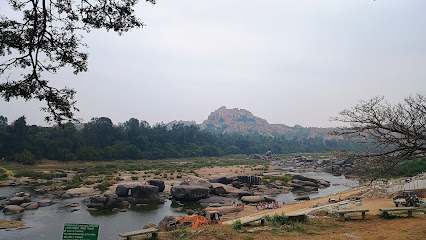
ಗಜಶಾಲೆ - Gudi Gajashale
0.1 km
Explore Gudi Gajashale in Hampi, Karnataka – a captivating tourist attraction rich in spirituality, culture, and stunning architectural beauty.
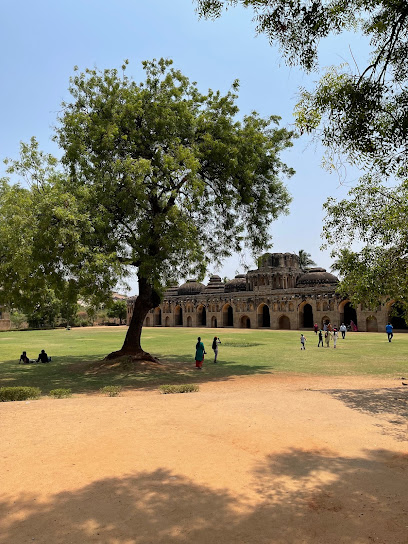
மன்மதன் குளம்
0.1 km
Discover the serene Manmatha Tank in Hampi, a beautiful blend of tranquility and rich heritage set against a picturesque landscape.

River Side Road
0.2 km
Explore the enchanting River Side Road in Hampi, where stunning landscapes meet rich history, perfect for peaceful strolls and cultural immersion.
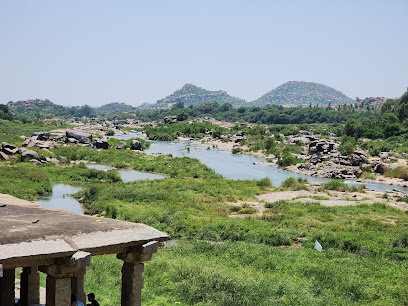
Laxmi the Temple Elephant
0.2 km
Discover the enchanting Laxmi the Temple Elephant in Hampi, a symbol of spiritual connection and cultural heritage amidst ancient ruins.

Elephant Rock
0.2 km
Experience the grandeur of Elephant Rock in Hampi, a breathtaking natural wonder that blends adventure with rich cultural heritage.
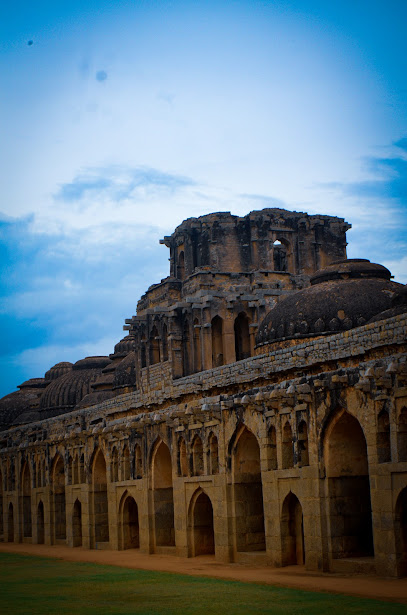
Tungabhadra Ghats
0.2 km
Experience the tranquility and historical charm of Tungabhadra Ghats in Hampi, a destination rich in culture and scenic beauty.

Tungabhadra River View Point
0.2 km
Experience the tranquil beauty of the Tungabhadra River View Point in Hampi, where stunning river vistas meet serene landscapes.
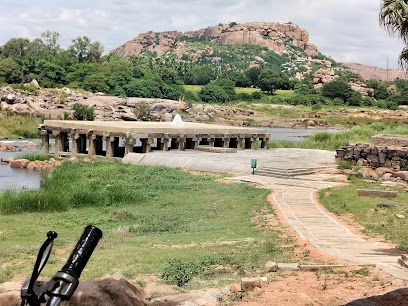
Vitthal Mandirv
0.2 km
Explore the artistic treasures of Hampi at Vitthal Mandir, a museum showcasing the rich heritage of the Vijayanagara Empire.
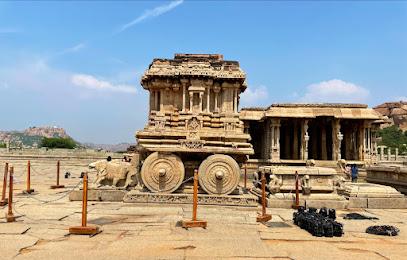
Virupaksheshwara Temple
0.2 km
Discover the breathtaking Virupaksheshwara Temple in Hampi, a spiritual haven with stunning architecture and rich cultural heritage.
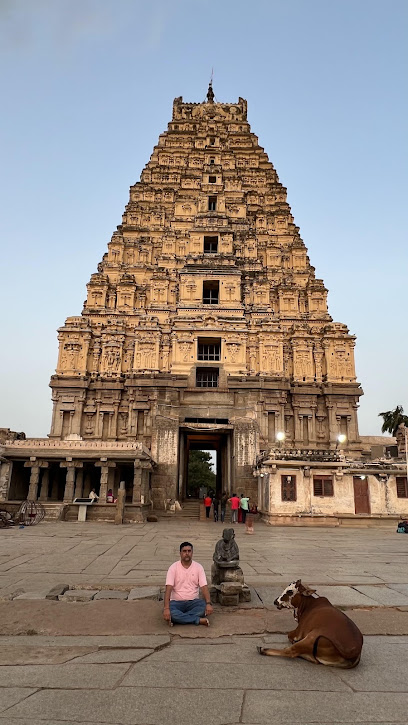
Temples on Hemakuta Hill
0.2 km
Discover the enchanting Temples on Hemakuta Hill in Hampi, where spirituality meets breathtaking landscapes and rich history.
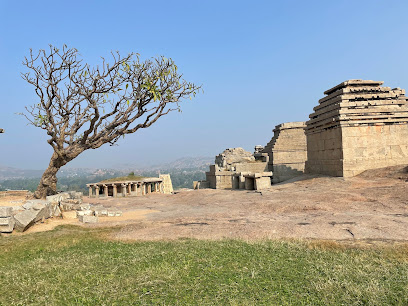
Hampi Vijayanagara
0.2 km
Explore the ancient ruins of Hampi Vijayanagara, a UNESCO World Heritage Site showcasing the majestic history of the Vijayanagara Empire amidst stunning landscapes.
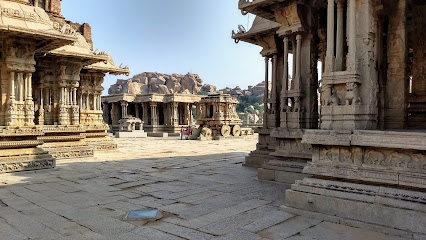
Sri Guddada Moola Virupaksha Gudi
0.3 km
Explore the spiritual essence and architectural marvel of Sri Guddada Moola Virupaksha Gudi, a sacred Hindu temple in the heart of Hampi.
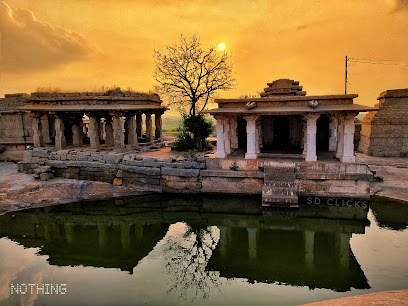
Essential places to dine
Funky Monkey restaurant
0.2 km
Experience vibrant flavors at Funky Monkey Restaurant near Virupaksha Temple in Hampi – where every dish tells a story.
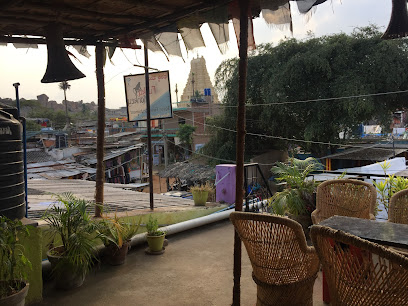
Shambhu Dosa Center
0.3 km
Discover authentic South Indian flavors at Shambhu Dosa Center, where every dosa tells a story amidst the historical charm of Hampi.
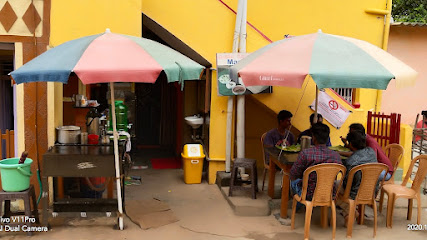
Ganesh Roof top Restaurant
0.3 km
Discover Ganesh Rooftop Restaurant in Hampi: A culinary gem offering authentic Indian flavors amidst stunning views.
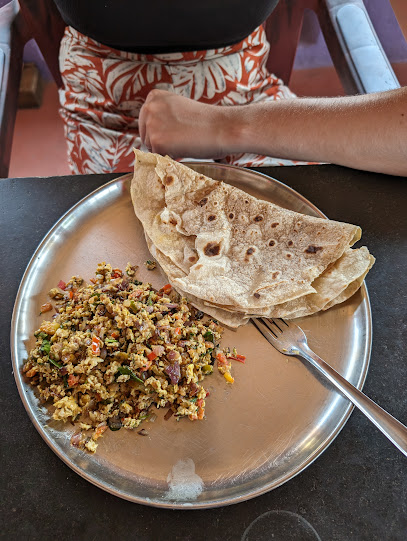
Taste of Brahmins
0.3 km
Discover authentic South Indian breakfast delights at Taste of Brahmins in historic Hampi.
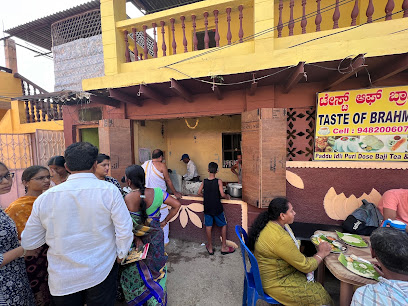
Appu Tiffin Center Hampi
0.3 km
Experience the essence of South Indian cuisine at Appu Tiffin Center in Hampi - where tradition meets flavor.
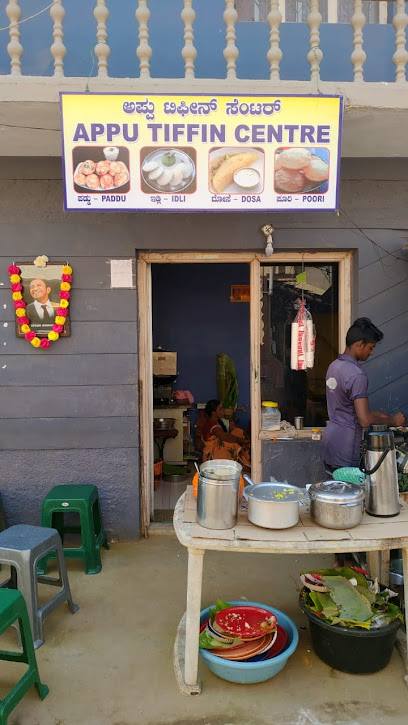
Gopi Guesthouse And Roof Restaurant
0.3 km
Discover diverse cuisines at Gopi Guesthouse & Roof Restaurant in Hampi - a culinary gem near historic temples.
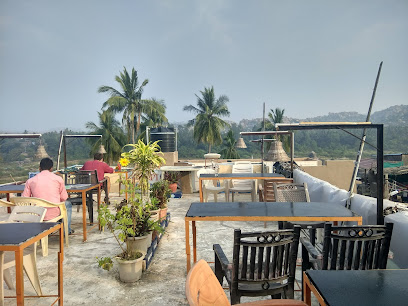
Prince Indian food court Junction . Devotees Stay, Hampi, Karnataka.
0.3 km
Experience authentic Indian cuisine at Prince Indian Food Court in Hampi - where flavor meets tradition in a vibrant atmosphere.

Panchamukhi Restaurant Hampi
0.3 km
Discover authentic South Indian flavors at Panchamukhi Restaurant in Hampi - where every meal is a celebration of taste.
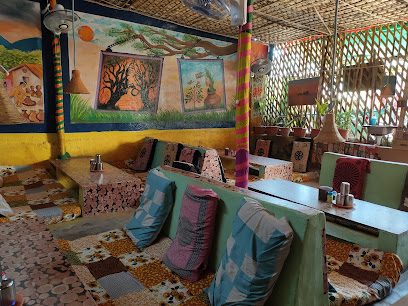
Ravi’s Rose Restaurant
0.3 km
Discover authentic Indian cuisine at Ravi’s Rose Restaurant in Hampi - a culinary delight surrounded by rich heritage.
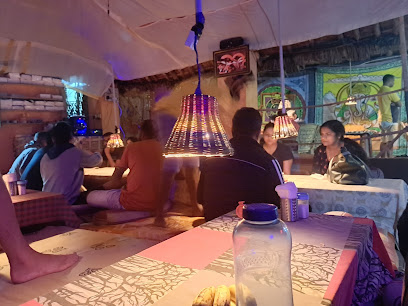
Sri Venkateshwara Hotel
0.3 km
Discover authentic Indian cuisine at Sri Venkateshwara Hotel in Hampi - where tradition meets flavor in a cozy atmosphere.
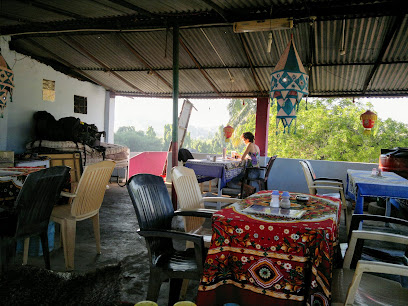
Shiva Cafe & Megha Guest House
0.3 km
Experience authentic Indian cuisine and comfortable lodging at Shiva Cafe & Megha Guest House in historic Hampi.
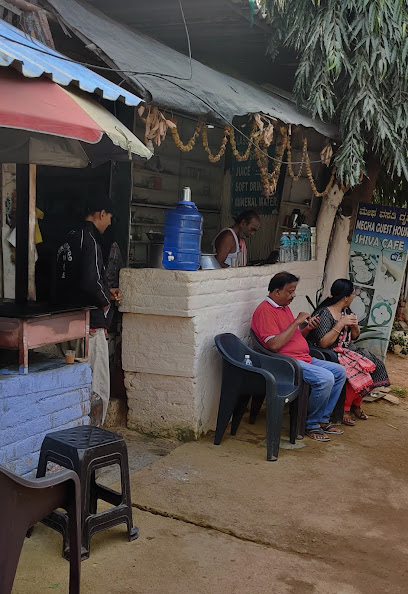
OLD CHILL OUT Ganesh RESTAURANT
0.3 km
Experience authentic vegetarian cuisine in the heart of Hampi at Old Chill Out Ganesh Restaurant – where taste meets tradition.
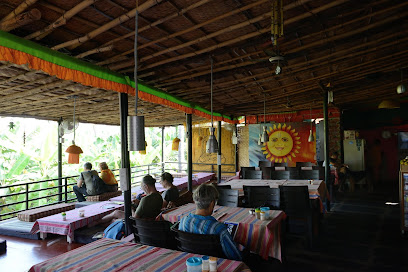
Chillout Bamboo Restaurant
0.3 km
Discover Chillout Bamboo Restaurant in Hampi: A delightful dining spot offering diverse flavors in an enchanting bamboo setting.
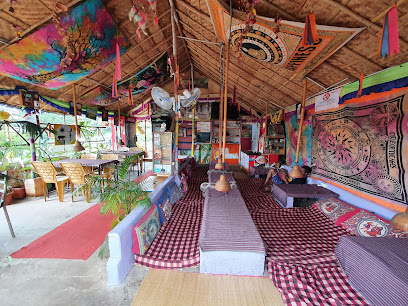
Geetha Restaurant and Home Stay
0.4 km
Experience authentic South Indian cuisine and cozy home stay accommodations in the heart of Hampi's historical landscape.

Dream catcher restaurant
0.4 km
Experience authentic Karnataka cuisine at Dream Catcher Restaurant in Hampi, where every dish tells a story amidst stunning views.

Markets, malls and hidden boutiques
Prashanth Shop
0.0 km
Discover the literary charm of Hampi at Prashanth Shop, your go-to bookstore for travel guides and local literature in this ancient city.

Shree nidhi sugarcane juse & organic jaggery point
0.2 km
Savor the refreshing taste of sugarcane juice and organic jaggery at Shree Nidhi in Hampi, a must-visit for flavor enthusiasts.

The lake
0.2 km
Discover the serene beauty of The Lake in Hampi, a perfect blend of nature and history in Karnataka's ancient landscape.
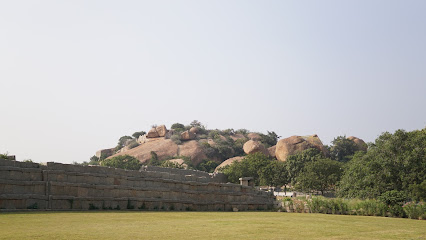
Kamalabai Cloths shop
0.3 km
Explore Kamalabai Cloths Shop in Hampi for authentic men's clothing and immerse yourself in the rich traditions of Indian fashion.

General Store
0.3 km
Explore Hampi's General Store for unique souvenirs, local snacks, and a taste of Karnataka's rich cultural heritage in the heart of Hampi Bazaar.
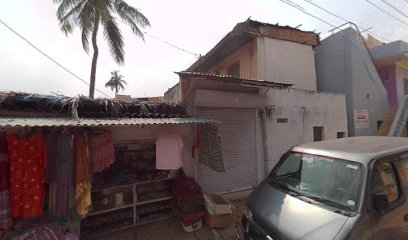
VISHNU GENERAL STORE
0.3 km
Discover the charm of Hampi at Vishnu General Store, your go-to place for local essentials and unique souvenirs near the iconic Sri Virupaksha Temple.

Venkatesh Naik Store
0.4 km
Explore Venkatesh Naik Store in Hampi for a unique blend of traditional and modern men's clothing, capturing the essence of local culture.

Vikram collections
0.4 km
Discover the essence of Indian culture with exquisite traditional attire at Vikram Collections in Hampi, Karnataka.
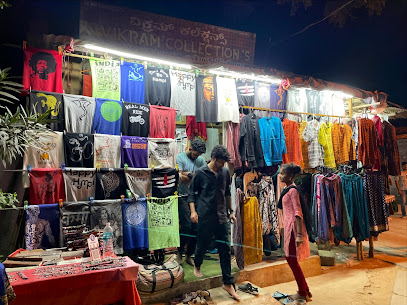
K Shanthi
0.4 km
Discover vibrant clothing and traditional textiles at K Shanthi, the charming clothing store near Virupaksheshwar Temple in Hampi, Karnataka.

AZHAR HANDICRAFTS
0.4 km
Explore Azhar Handicrafts in Hampi for unique local treasures that reflect the rich cultural heritage of Karnataka.

Nice readymade clothes shop
0.4 km
Explore a vibrant clothing store in Hampi offering unique ready-made garments that reflect the rich heritage and craftsmanship of Karnataka.
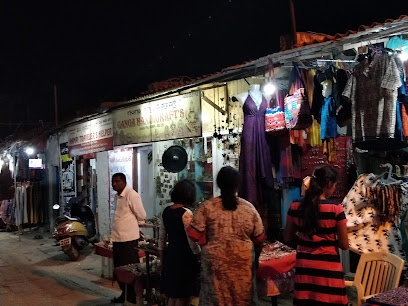
GEETA VEKATESH
0.4 km
Discover the essence of Indian fashion at Geeta Vekatesh, where tradition meets modern style in the vibrant heart of Hampi.

SUMA GENARAL STORE
0.4 km
Explore the vibrant local culture at SUMA General Store in Hampi, where everyday essentials meet unique souvenirs and local charm.

Preetham Cloths Shop Hampi
0.4 km
Explore authentic Indian textiles and vibrant fashion at Preetham Cloths Shop in Hampi's bustling Janatha Plat Bazaar.

The Incense Museum
0.4 km
Explore the aromatic heritage of India at The Incense Museum in Hampi, where the art of fragrance comes alive through history and hands-on experiences.
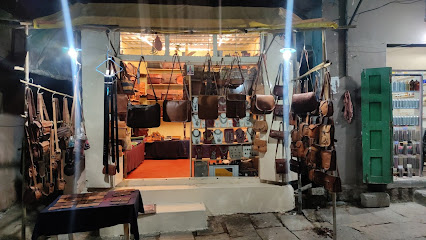
Essential bars & hidden hideouts
Realx inn
0.2 km
Discover the authentic flavors of Karnataka at Realx Inn, a culinary gem in the heart of Hampi, perfect for travelers seeking rich local cuisine.
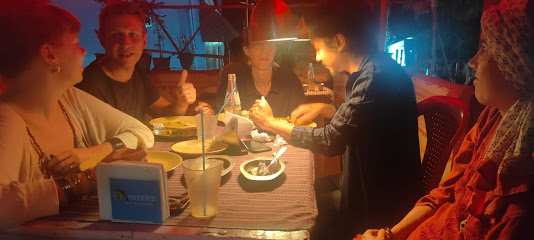
Hampi Roof Restaurant
0.4 km
Experience the flavors of Hampi at Hampi Roof Restaurant, where local cuisine meets stunning views of ancient ruins.

Monkey Paradise cafe
1.5 km
Experience the charm of Monkey Paradise Cafe in Sanapur, Karnataka, where delicious local cuisine meets a serene natural setting.

Gopi Island
1.6 km
Gopi Island: A tranquil haven in Hampi offering stunning landscapes, rich culture, and delightful local cuisine for every traveler.

Wanderlust Hampi
1.7 km
Experience the best of Indian cuisine at Wanderlust Hampi, where every meal is a celebration of flavors in a stunning setting.

Island Vibes Hampi
3.2 km
Discover the perfect blend of traditional cuisine and serene nature at Island Vibes Hampi, a unique restaurant and guest house in Karnataka.
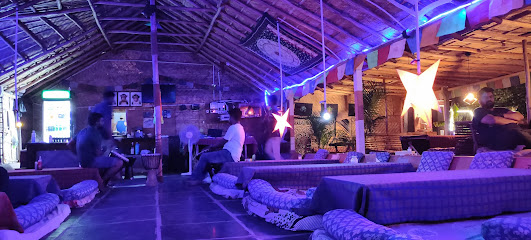
MANGO TREE RESTAURANT
4.0 km
Experience the vibrant flavors of Karnataka at Mango Tree Restaurant, a delightful vegetarian haven in Kamalapur, perfect for all food enthusiasts.

The Nest – Lakefront Restaurant at Hampi
4.5 km
Experience lakeside dining at The Nest in Hampi, where stunning views meet delightful cuisine for a memorable culinary adventure.

Laughing Buddha Restaurant Hampi
6.7 km
Discover the vibrant flavors of Israeli, Italian, and Mediterranean cuisine at Laughing Buddha Restaurant in Hampi, where every meal is a joyful experience.
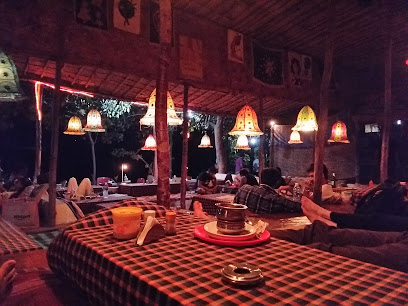
Waves
9.7 km
Experience authentic Indian cuisine and refreshing drinks at Waves, the perfect retreat for tourists in Hosapete, Karnataka.

Gosandra maaramma bar
96.3 km
Discover the vibrant nightlife and authentic local flavors at Gosandra Maaramma Bar in Mustur, Karnataka, a must-visit for every traveler.




